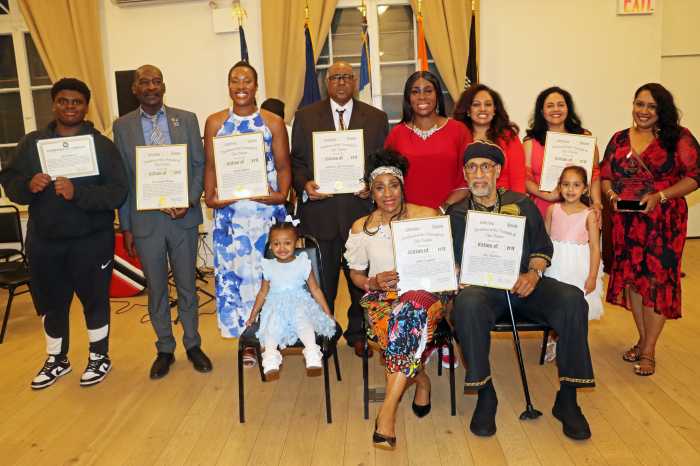Successive governments and administrations in Trinidad have blamed everything from weapons and drug smuggling, the activities of radical Islamic groups in the country to the state of the economy for nearly two decades violent crime, assassinations and abductions but officials are putting a new periscope on the issue that may well trigger a decent reduction.
In a country, which is used to a gun murder every 20 hours or so, security officials openly bragged this week that a deliberate effort to arrest several gang leaders has resulted in zero murders between Sunday and Wednesday, an unusual development in daily island life. Police have on file 298 killings for the year so far, slightly behind that of last year.
But more importantly, authorities including Prime Minister, Keith Rowley are now admitting that governments have made serious political mistakes in the past by allowing gangs to bid for state contracts. This in turn has resulted in serious infighting by gangs trying to muscle out rival groups. There is also evidence, the prime minister said, that some gang leaders have been engaging in extortion, using their influence to demand a share in state road repair and other contracts. Some of the money from these very contracts help to fund criminal activities. Rowley said this practice will soon end.
The move to divorce gangs from state contracts and cut off their money supply, comes about a week after Police Chief, Gary Griffith angrily demanded an abrupt end to this, saying everywhere else in the world enforcement agencies try to cut off the money supply. In Trinidad, this is the opposite but police now seem to have the agreement and backing of Rowley’s cabinet.
“It’s been with us for quite some time,” Rowley told reporters.” It is not a simple problem to get rid of because it has worked into our administrative systems. And we have to work our way out of it. And we will certainly do so.”
Elaborating, he contended that contract programs such as the Urban Rehabilitation Relief Program (URP), Community-based Environmental Protection and Enhancement Program (CEPEP) and to a lesser extent other small programs including the Housing Development Corporation (HDC) were handed to various community groups instead of being handled by the state “under the hands of public officials. We moved into this new environment of awarding contracts. We jumped from the frying pan into the fire. Remember ghost gangs, the gangs that didn’t exist but only on the pay sheet,” he said.
But at least that gang wasn’t killing you. This one killing you. And then competition started for this largest contracts,” he said.
Based on the power of Commissioner Griffith’s complaints about gangs enjoying state money, the Guardian Newspaper said police have rounded up several gang leaders in the past week, seized guns and ammunition and have watched as murders dried up, proof they said, of a co-relation to gang activity and state money.
Alarm bells about the state of play on the island rang loud last week after police reported 25 murders in a single week, moving the death average from about one every 20 hours or so to nearly four a day.
The state has been experimenting with various welfare programs to gangs and groups in various low income communities for more than 20 years. Officials said this has now backfired as this could be the main reason why Trinidad has such as high murder rate in a country with a population of only 1.3 million.
He said efforts to help find work in low income areas have now basically backfired and illicit activities, including padded workers payrolls relating to contracts are now so entrenched that it is a headache to authorities. The record for killings reached 550 back in 2008.


























